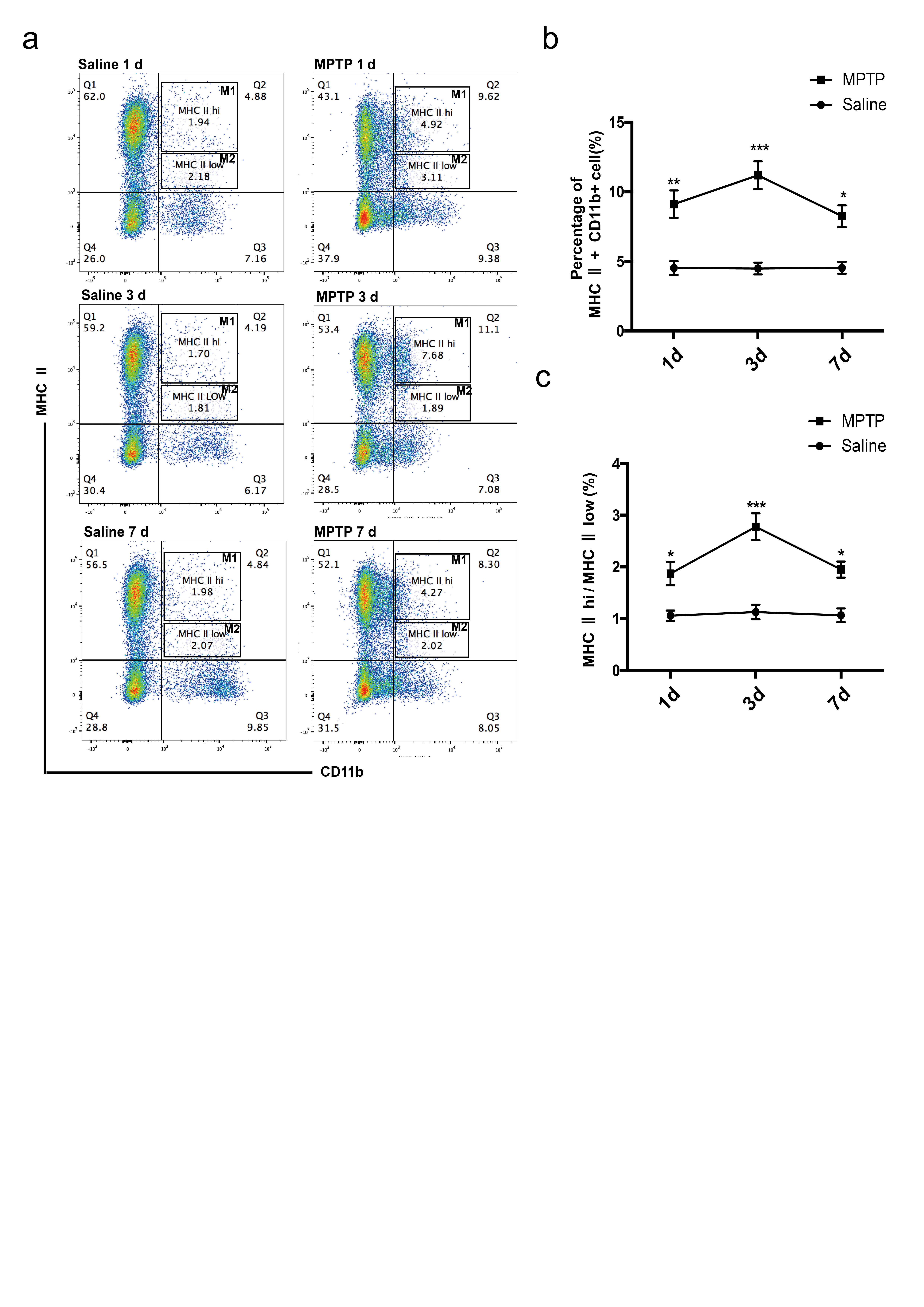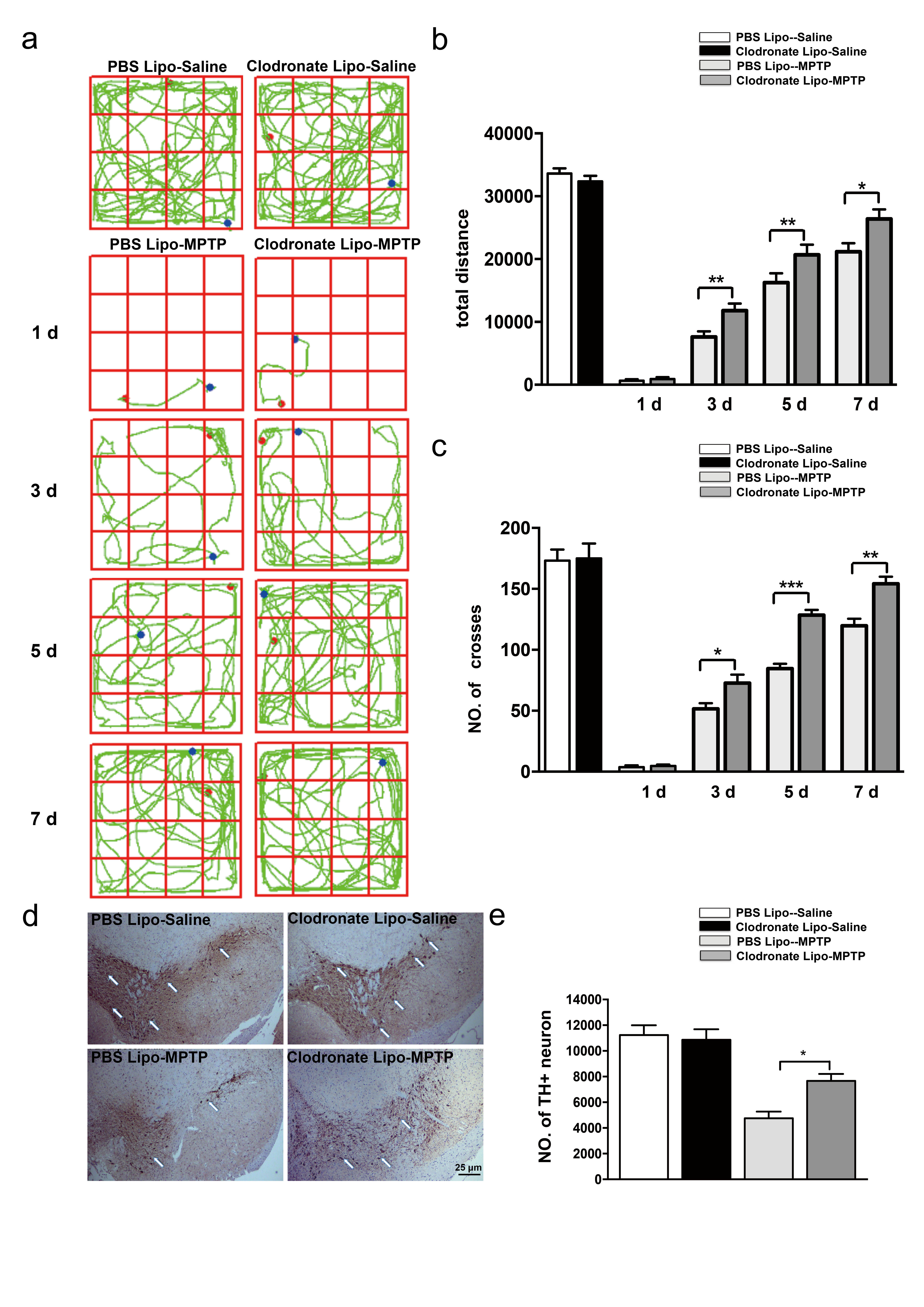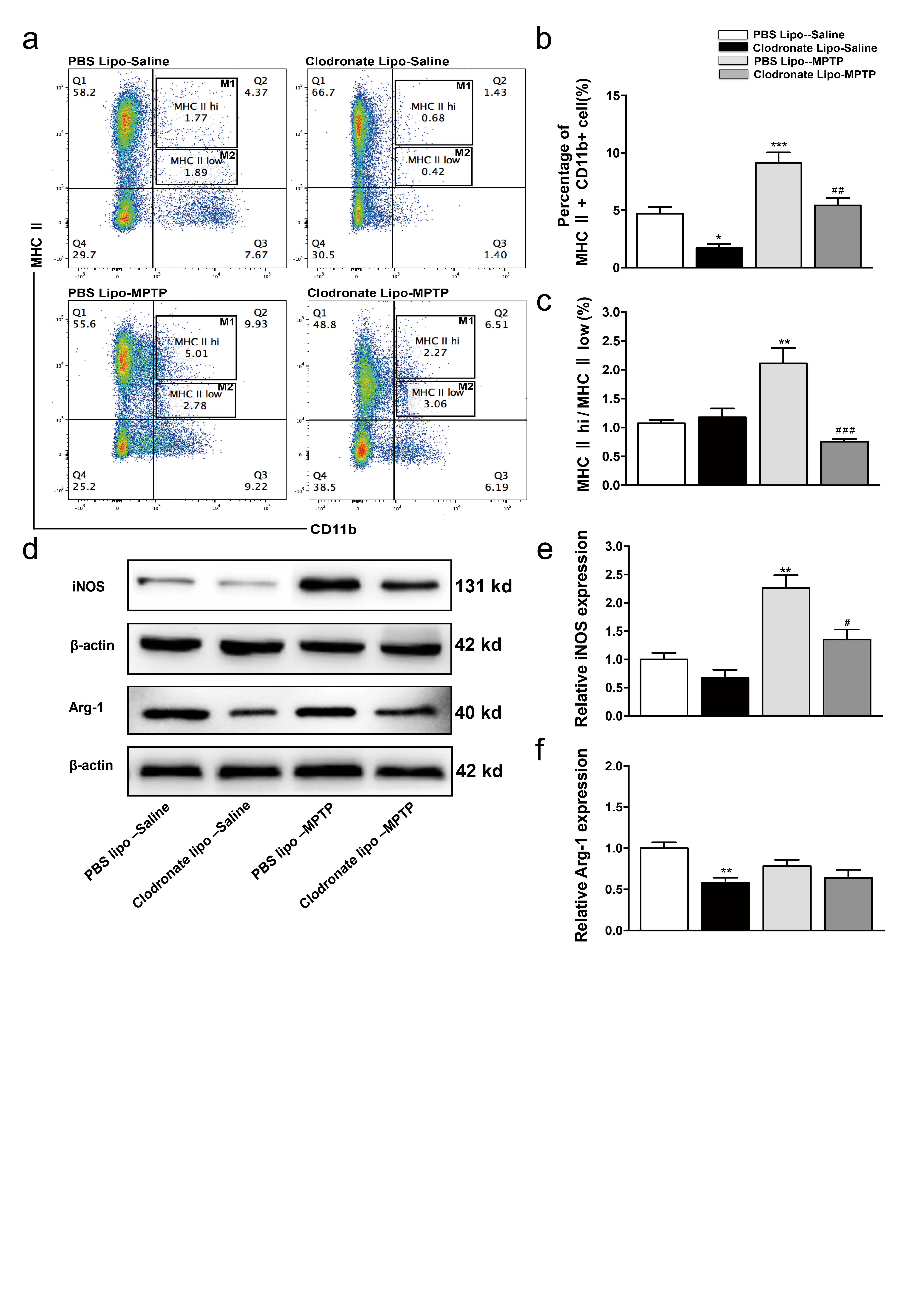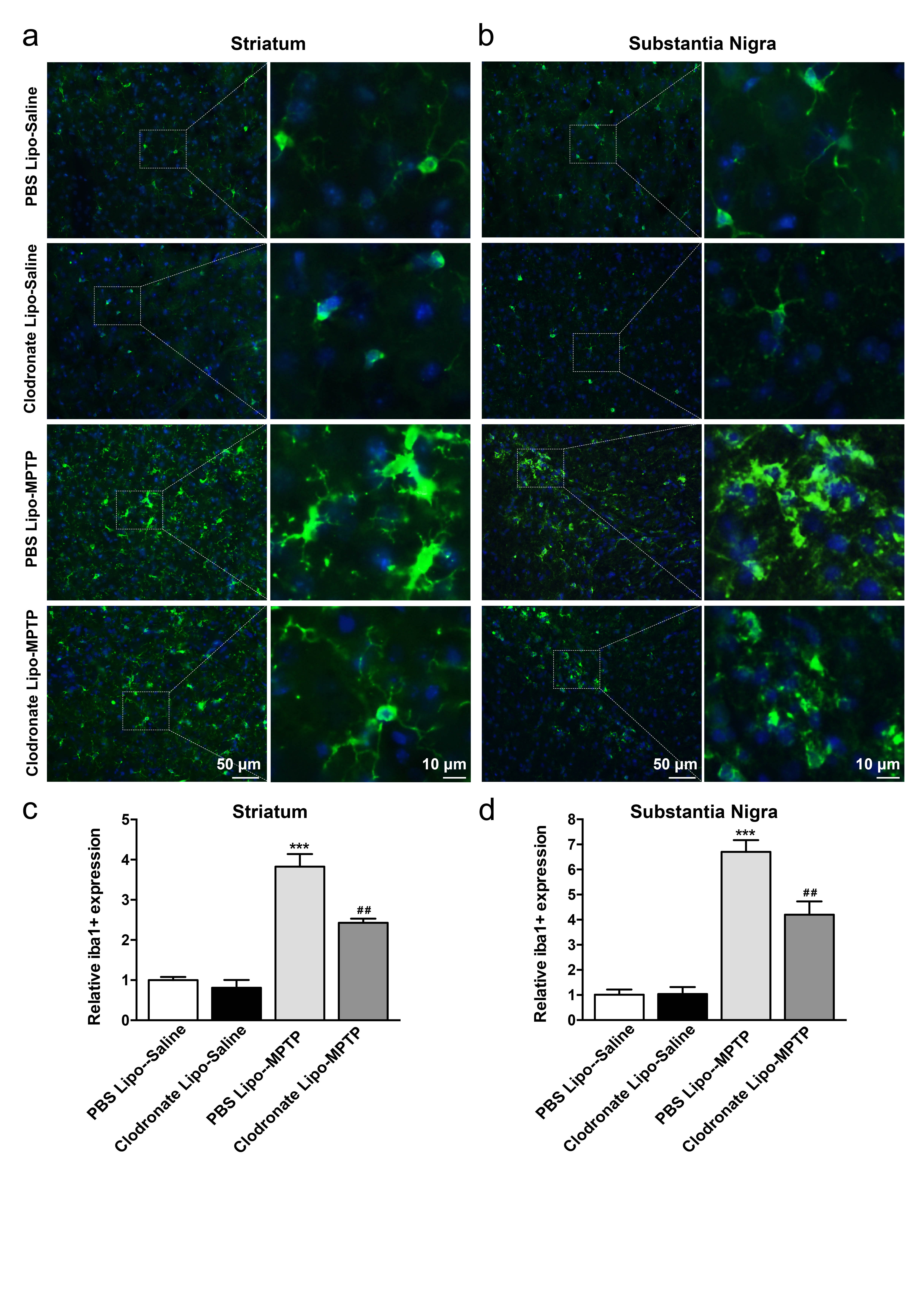Session Information
Date: Monday, October 8, 2018
Session Title: Parkinson's Disease: Pathophysiology
Session Time: 1:15pm-2:45pm
Location: Hall 3FG
Objective: Neuroinflammation in the PD brain involves the activation of microglia and the increasing levels of inflammatory cytokines. Several studies have shown that the peripheral immune system is changed in neurodegenerative diseases. However, the function of the peripheral immune system in PD is not fully understood. Therefore, we employed an MPTP induced mouse model of PD to explore the role of macrophages in brain neuroinflammatory events and dopaminergic neuronal death in the SNpc. Our research may give a new clue for the implication of peripheral immune system in PD pathogenesis.
Background: Neuroinflammation plays an important role in the pathogenesis of Parkinson’s disease (PD). Inflammatory cytokines in the peripheral immune system can induce neuroinflammation in central nervous system (CNS). Whether the peripheral immune system is involved in PD is unclear. The present study investigated the contribution of the peripheral immune system to the neuronal loss in the 1-methyl-4-phenyl-1,2,3,6-tetrahydropyridine(MPTP) model of PD.
Methods: MPTP was intraperitoneally injected into mice to generate a PD model. Mice received clodronate liposomes every 3 days to deplete peripheral macrophages. The percentages of macrophages were measured by flow cytometry at 1,3,7 days after MPTP injection. Neurobehavioral parameters, protein expression, inflammatory cytokines release, and microglia activation were measured by the open field test, western blotting, quantitative polymerase chain reaction (qPCR), and immunofluorescence staining, respectively at 7 days after MPTP injection.
Results: Our research found that the number of macrophages from the spleen was increased in the MPTP model of PD, especially for M1 macrophages. Depletion of M1 macrophages ameliorated the neuroinflammatory reaction and protected the mice against MPTP-induced loss of dopaminergic neurons.
Conclusions: Our results indicated the critical role of M1 macrophages in the pathogenesis of PD and proposed inhibition of M1 macrophages as a promising therapeutic approach for neurodegeneration.
References: 1. Appel, S.H. (2012). Inflammation in Parkinson’s disease: cause or consequence? Mov Disord 27(9), 1075-1077. doi: 10.1002/mds.25111. 2.Cunningham, C., Campion, S., Lunnon, K., Murray, C.L., Woods, J.F., Deacon, R.M., et al. (2009). Systemic inflammation induces acute behavioral and cognitive changes and accelerates neurodegenerative disease. Biol Psychiatry 65(4), 304-312. doi: 10.1016/j.biopsych.2008.07.024.
To cite this abstract in AMA style:
A. Yan, Y. Zhang, J. Lin, L. Song, X. Wang, Z. Liu. Partial depletion of peripheral M1 macrophages ameliorates the neuroinflammation and dopaminergic neuronal death in the brain of a MPTP-induced mouse model of PD [abstract]. Mov Disord. 2018; 33 (suppl 2). https://www.mdsabstracts.org/abstract/partial-depletion-of-peripheral-m1-macrophages-ameliorates-the-neuroinflammation-and-dopaminergic-neuronal-death-in-the-brain-of-a-mptp-induced-mouse-model-of-pd/. Accessed April 20, 2025.« Back to 2018 International Congress
MDS Abstracts - https://www.mdsabstracts.org/abstract/partial-depletion-of-peripheral-m1-macrophages-ameliorates-the-neuroinflammation-and-dopaminergic-neuronal-death-in-the-brain-of-a-mptp-induced-mouse-model-of-pd/




